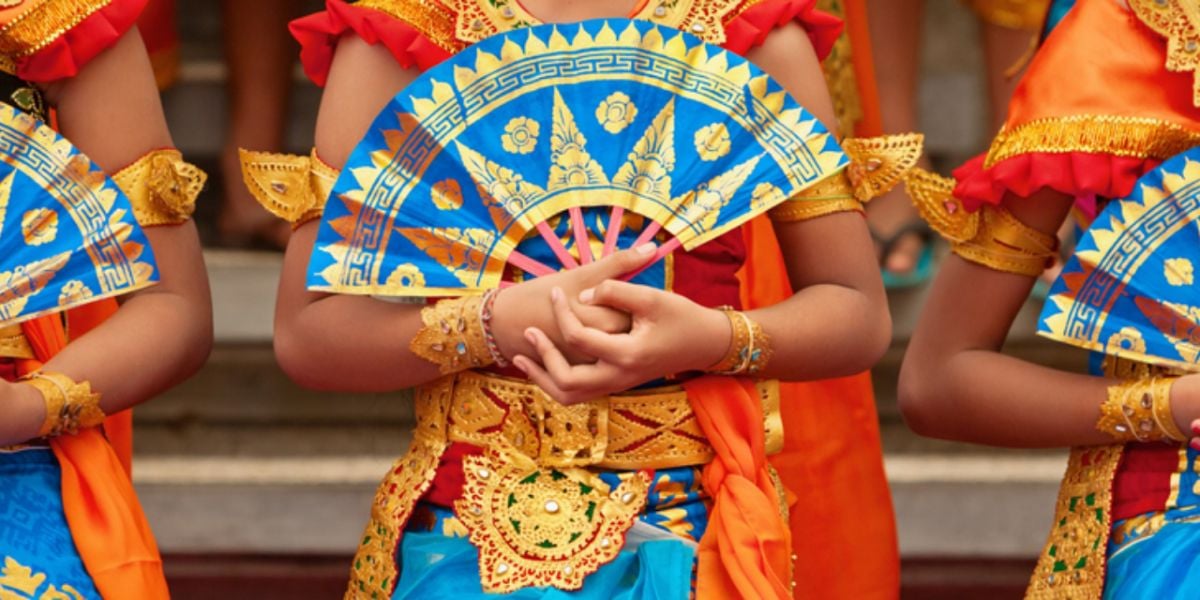
Like Indonesians in general, the Balinese people are smiling and very hospitable, open to strangers and always willing to help. In the south of the island, where most expatriates reside, you will meet many English-speaking Balinese. As a future expatriate, you will have no trouble adapting to the accessible, inspiring and stimulating Balinese culture.
Understanding the Balinese way of life
When you come from a modern country where life moves at a hundred thousand miles an hour, the Bali way of life will require a slight adjustment on your part. Life there goes at a different pace and seems to have some other meaning. In fact, the perception of time is very different in Bali because it derives from the Tri Hita Karana philosophy that takes its roots from the three causes of well-being. This is how the Balinese believe that to live a prosperous life, people must be in harmony with God, with each other, with nature and the environment.
In everyday life, Balinese people like to take their time and synchronize with their surrounding nature. The sense of urgency is not part of their daily routine, just as it is in nature, which likes to take its time. This setting is perfect if your expat project in Bali makes a good share of work-life balance.
Religion in Bali
The Balinese way of life differs significantly from the lifestyle in the rest of the Indonesian islands. While the majority of Indonesians are Muslim, Balinese are 90% Hindu. Balinese Hinduism is nevertheless quite particular. If the main gods of the Hindu cosmogony are worshipped on the island, the Balinese also believe in ancient animist deities and have their own celebrations and festivals. The result is a very colorful mix of Hinduism and ancestral beliefs. You will discover, for example, the canang, these small offerings composed of multicolored flowers deposited every morning, noon and evening in front of each Balinese house, each store, each temple and road.
On ceremony days, religious activity is amplified tenfold with employees taking the day off, and closed roads, all feeding the already heavy traffic. So don't lose your cool and just enjoy. You will notice municipal police officers dressed in black and white sarongs, whose task is to maintain security and direct traffic.
In Bali, the Banjar is a community unit that usually governs a village. It is, in fact, the smallest form of local government in Bali. For example, it is to your Banjar that you will pay community contributions intended to improve the general welfare. Don't be surprised if you are asked to participate in the larger ceremonies as well. As an expatriate in Bali, you should naturally show respect for local religious acts and customs, as religion and family are both essential and sensitive in Bali. For example, indecency can be punished by outright deportation from the country!
Greetings and introductions in Bali
Do as the Balinese do, smile! Smile to greet, show respect and give acknowledgment. In the same way, you will order your drink with a smile, smile to your neighbor who leaves for work in the morning. Actually, this simple act is the best way to build relationships in Bali.
The other critical point is respect for the elderly. Intrinsic to Indonesian culture, respect for the elders is more important than their social status. Therefore, be polite, speak softly, and use honorific prefixes.
Regarding common prefixes:
- Sir: Pak (for older men),
- Madam: Ibu / Bu (to address older or married women),
- Miss: Mba or Mbo in the Balinese language (to address young single women. If you don't know if a woman is married or not, it is safer to address an adult woman as Ibu),
- Young man: Mas or Bli in the Balinese language.
Respect and tolerance in Bali
Whenever possible, speak softly or keep your voice down when speaking. Balinese, like the rest of Indonesians, despise public confrontation and if you find yourself in a disagreement or conflict, resolve it privately with the person concerned. This is the concept of "saving face".
In general, the Balinese have a high tolerance for foreigners through their daily interactions with tourists, but in the process of integrating as an expat, follow those around you or simply ask. For example, if you're not sure if you should take off your shoes before entering a temple, other people's homes, or a store, simply ask, "Maaf, apakah saya harus lepas sepatu" - "Please excuse me. Should I take off my shoes?" By asking, you are at least showing your intention to be polite and respectful of their customs.
Among the rules that must be respected at all times, there is a critical one, and it concerns the head! Considered a sacred part of the body, it and especially children's, must never be touched.
At the other end, the feet are considered dirty. And remember, take your shoes off when you enter a house or a temple. Why? Simply because they are believed to carry bad energy. Moreover, since feet are dirty, pointing them at the person sitting in front of you, especially if it's someone older than you, is rude!
Another essential element is that the Balinese are a communal society and it is customary for families to live together in large compounds where everyone knows each other's business.
Topics of conversation in Bali
When meeting a new person, Balinese people ask questions that might be considered intrusive in the West:
- Where are you from?
- What is your religion?
- Are you married?
- Where is your spouse? (If you are married).
- How many children do you have?
- Where do you work?
While this may seem like an invasion of privacy and personal space, it is actually a way to ask about someone, to break the ice with a stranger.
If you want to build relationships without sharing more information, you can simply respond politely with short answers such as:
- I'm from xxxxxx,
- I am a Christian - even if you are an atheist, as religion is a sensitive topic in Indonesia. For your information, Indonesia has six official religions: Islam, Christianity (both Catholics and Protestants fall into this category), Christianity, Buddhism, Confucianism and Hinduism.
- I am married, but my spouse is not with me in Bali,
- I work in a hotel - even if you do not wish to disclose the name of your employer.
Such brief answers should normally be enough to satisfy your interlocutor.
The answers to these questions will make it easier for your interlocutor to integrate you into their circle without any judgment!
Useful link:
We do our best to provide accurate and up to date information. However, if you have noticed any inaccuracies in this article, please let us know in the comments section below.








